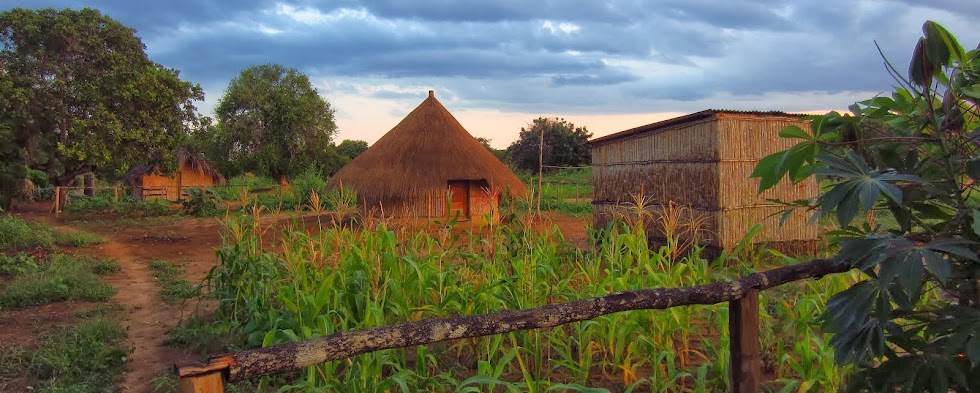My host school, Escola Secundaria de 25 de Junho in
Mapinhane, boasts an enrollment of 700 students spanning three grade levels and
nearly 30 teachers and staff members. Yet, despite being a school of this size,
until a month ago we didn’t have accessible clean drinking water on campus. As
such, students needed to walk 10+ minutes across the village and stand in line
to wait with the dozens of community mothers collecting water to simply get a
drink before heading back to class. Consequentially, getting a "quick
drink of water" always delayed and disrupted student learning, as students
always somehow seemed to disappear after their trip to the community well,
skipping the rest of their class period(s). Moreover, because of the gendered
labor distribution practices in rural Mozambique, if the school needed to
collect water for their at the time small, pathetic, scraggly attempt at a
garden, it was the girls who seemed to always be pulled out of class or away
from their male peers to fetch water.
Back in May, I finally decided to run by my observations
with the school director, Marculino Bambamba. A well-educated and incredibly
serious man, he listened to my concerns with intense gravity.
"Infelizmente filha," he sighed after I'd finished speaking,
"The government cannot allocate us the money yet to install a borehole. We
simply don't have the money. We can't even buy books! But I agree, it is one of
our most crucial school needs." We sat silently for a minute. "But if
I could raise the money," I said "you would support the installation
and raise community and parental support?" "Claro." he said. And
with that the meeting was over. But, at a time when the library was faltering,
I knew I'd found my next secondary project to tide me over - one that would
also directly benefit my primary project too. Because as everyone knows, agua
e' vida- water is life.
And so began the fundraising research, contractor borehole
installation quotes, and application submissions to both independent NGOs and
Peace Corps alike. Months passed. Finally, we got our break. We were awarded
one of USAID's "Small Project Assistance" grants – nearly $6000. From
the day we broke ground, it only took a week to drill and install the school
borehole... a relatively quick process that yielded an tremendous and immediate
impact upon our community.
 |
| The "before" photo, taking soil from the digging point to bless the ground and water through a traditional ceremony conducted by the village chefes. |
 |
| The village chefes conducting the traditional blessing before we're allowed to break ground |
 |
| Celebrating the start of the drilling process! Let's drink! (The chefes got wine, the rest of us orange Fanta haha) |
 |
| Day 2: Doug in the captain's seat! |
 |
| Day 3: After striking a dense rocky layer, we finally broke through. So much water! |
 |
| My two counterparts, Sr. Director Marculino and Doug - PCVs uniting people and resources to get the job done!! |
 |
| One week later. The official ribbon cutting ceremony! |
Now, not only do students have access to clean drinking
water throughout the school day, the school garden has transformed from a
withered yellow cluster of dusty vegetation to a vibrant and flourishing
garden, with an incredible boom of staple crops. With time (and the next PCV at
my site), the easy access to water will empower Director Marculino to make even
greater changes and growth to our school garden and nutrition programs. We've also
discussed introducing an income generation project by expanding our peanut
production and selling the peanut butter as a means of fundraising for school
resources. We've also partnered with the Agro-Percuaria teacher to begin
improving the biological and nutritional diversity of the garden by introducing
vitamin rich foods such as covi and orange sweet potato into his academic
lesson plans.
Using our education and specialized skills and experiences in grant
writing and fundraising to empower local counterparts to meet community needs -
to me this is the heart of Peace Corps service. Helping people help themselves.
The borehole may only be the first step towards bigger school development
projects, but it is the FIRST STEP. A million different community projects can
grow from this single foundation. Because water is life. And life is meant to
be nurtured like a garden. Let's see what our garden grows.









